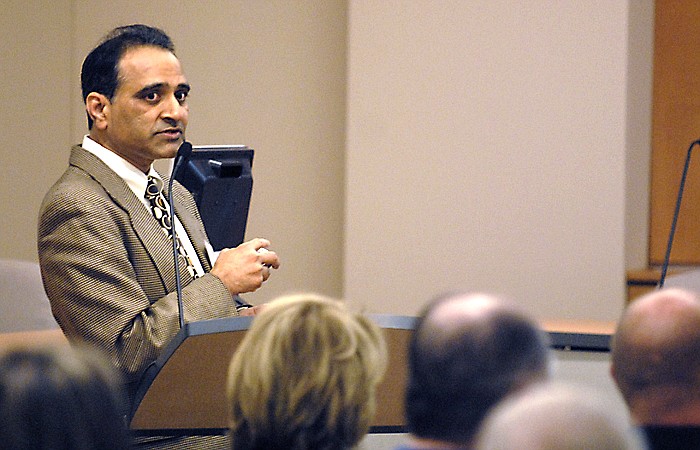Bullet train corridors
Three potential routes studied between Chattanooga and Atlanta:› I-75 corridor: Begins on east side of Atlanta’s airport and follows the interstate through the Peach State capital and then to Cartersville, Dalton and Chattanooga’s airport and downtown.› East corridor: Follows same alignment to Cartersville and then goes east and generally parallels U.S. Highway 411, stopping at Dalton-Chatsworth and Chattanooga airport stations to downtown.› I-75/Rome corridor: Follows same path to Cartersville, but then parallels U.S. Highway 411 to Rome. It later rejoins I-75 before the Dalton station and goes to Chattanooga.Source: Georgia Department of TransportationFast-train studyTo see the draft report, go to www.dot.ga.gov/IS/Rail/AtlantatoChattanooga
FAST-TRAIN STUDY
To see the draft report, go to www.dot.ga.gov/IS/Rail/AtlantatoChattanooga
Nearly two decades after the idea of a bullet train between Chattanooga and Atlanta left the station, the first part of a two-track study is almost ready.
And while the next study phase lacks needed funding to go forward, President-elect Donald Trump, who talked up mass transit and high-speed rail during the campaign, could put more zip into the train effort, some say.
"So much depends on Washington's position on what they would or would not want to do," said Chattanoogan Joe Ferguson, who for many years shepherded the city's rapid-rail efforts.
The Georgia Department of Transportation study has narrowed the route options on the 110-mile section to three: one that runs along Interstate-75, another that travels parallel to U.S. Highway 411 through much of Northwest Georgia, and a third that goes through Rome, Ga.
The study said the I-75 route rated best in travel time, capital cost and potential noise and vibration impacts. It has an estimated $8.7 billion price tag.
Train advocates have talked about the Chattanooga-Atlanta section as part of a bigger route between Chicago and Savannah, Ga.
In the past, GDOT, the Tennessee Department of Transportation, the U.S. Department of Transportation, the city of Chattanooga and the city of Atlanta have all put in money to finance the study.
A year ago, Chattanooga Mayor Andy Berke said that while the bullet train idea might be neat, he doubted there was money or political will to build it. The city has taken up its own study of commuter rail inside Chattanooga, with a detailed report due within a few weeks.
"Any kind of intercity rail doesn't happen without large-scale federal investment," Berke said last year. "It's pretty clear that the federal government is not in a position right now to do large-scale infrastructure investments."
Berke said in a statement last week that Congress is talking about taking up a major infrastructure bill next year. Trump proposed spending $1 trillion on the campaign trail.
"As they move forward, we will work with Georgia on identifying potential opportunities if they are funded," Berke said.
Dave Crockett, a former Chattanooga city councilman and a long time fast-train proponent, said that Trump's interest is "our golden opportunity."
"We have a president who is bold thinking," he said. "This is one of his agenda items."
Crockett, who plans to run for Chattanooga mayor next year, said that connecting Chattanooga and Atlanta within 40 minutes on a 300 mph train would transform the region's economy.
He thinks the project could be turning dirt within four years.
Former Chattanooga Mayor Ron Littlefield, who has supported the bullet train, said last week he remains optimistic rapid-rail will move ahead.
He said he can't see continuing to build more traffic lanes on I-75 while adding runways to Hartsfield-Jackson Atlanta International Airport.
Littlefield said he supports the idea of Chattanooga Metropolitan Airport serving as an overflow to Atlanta's, which already is the busiest in America.
"Chattanooga could be a safety value of Atlanta," he said.
Ferguson said it appears that the recently released draft of the train study has information which was available several years ago and that it "basically is dusted off."
"I was delighted to see the project was resurrected," he said.
Ferguson said he's not sure about the timing or who's driving the train effort now, though GDOT is in charge of the study.
"You've got to have a champion," he said. "There's got to be somebody staying on top of this thing."
John Van Winkle, the city's traffic engineer who's overseeing the train initiative for Chattanooga, said the second phase of study would select the preferred corridor and is much more detailed.
"Right now there's no funding requested because no proposal is ready to go to the Federal Railroad Administration to proceed," he said. "It's premature to ask if the city is going to set aside funds."
Mohamed Arafa, a GDOT spokesman, said there's no decision on what will happen next or when. He said it's up to leadership at the state and federal level to decide if they want to provide more funding into the project.
But at this time, Arafa said, there's no money available for the next phase of study.
In the past, it's estimated that more than $16 million has gone into the high-speed study from city, state and federal governments.
At a public meeting in Chattanooga that GDOT held last week, some local Chattanoogans said they're interested in seeing what happens in the future.
Justin Strickland of Chattanooga said he thinks the connection between the city and Atlanta would be "really important."
"Regional rail is where America needs to go," he said.
Scott Anderson, also of Chattanooga, said America is 30 years behind Europe when it comes to rail transportation.
"I'm excited we've been studying it," he said.
Contact Mike Pare at mpare@timesfreepress.com or 423-757-6318.
